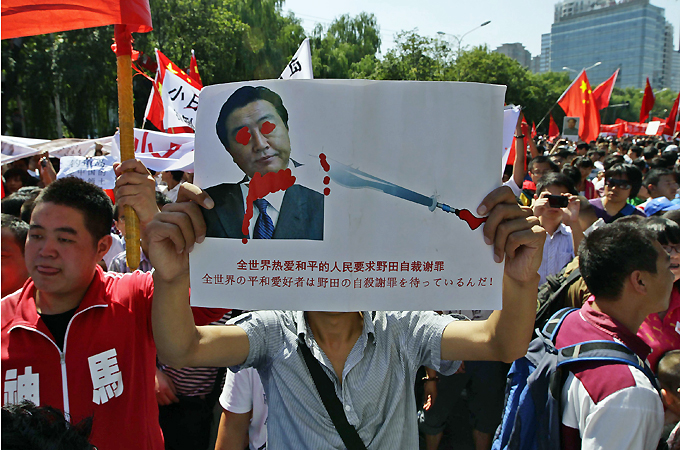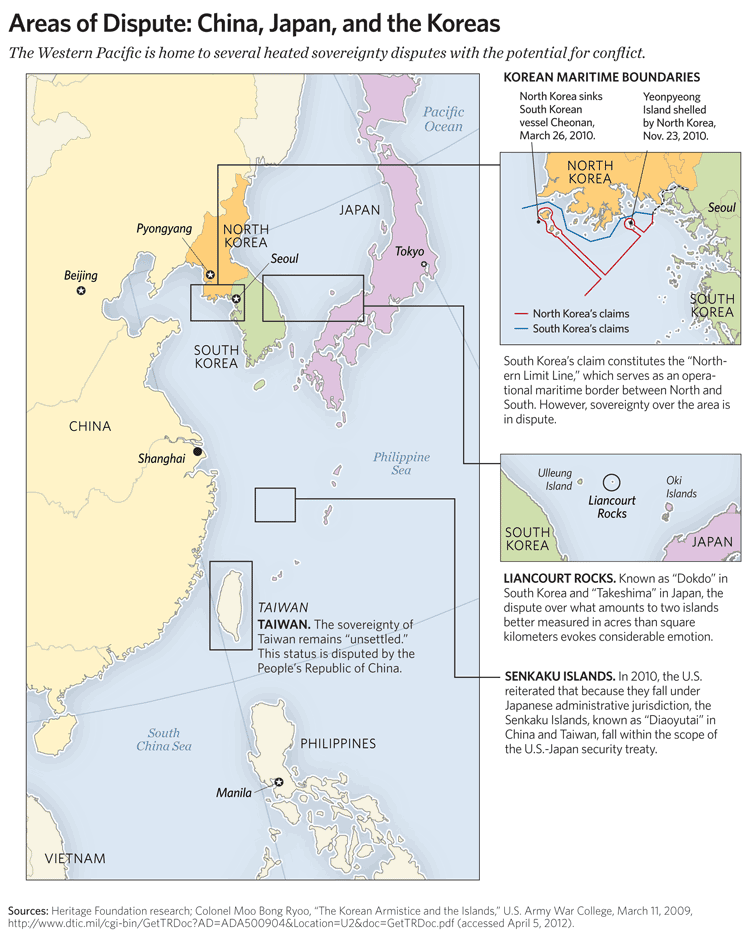– Meanwhile In Beijing: “For The Respect Of The Motherland, We Must Go To War With Japan” (ZeroHedge, Sep 16, 2012):
Anti-US protests sweeping across the entire Muslim world (which are continuing today), besieging, attacking and burning down US embassies, are not the only thing that the central banker policy vehicle known as “the markets” have to ignore in the coming days and weeks. Cause here comes China: “Thousands besiege Japan’s embassy in Beijing over Tokyo’s assertion of control over disputed islands in East China Sea.” And China is not happy: “For The Respect Of The Motherland, We Must Go To War With Japan.” Sure enough, where would the US be if the focal point of this escalation in militant anger – the Senkaku Islands – was not merely the latest expression of Pax Americana, and America’s national interests abroad.
We already discussed the inevitable implications of the meaningless populist agitation over the contested Senkaku Islands. Here it is playing out in real time:
Protests in China are growing over Japan’s assertion of control of disputed islands.
Thousands of Chinese besieged the Japanese embassy in Beijing on Saturday, hurling rocks, eggs and bottles with protests reported in other major cities over the territorial dispute in the East China Sea.
Paramilitary police with shields and batons barricaded the embassy, holding back and occasionally fighting with slogan-chanting, flag-waving protesters who at times appeared to be trying to storm the building.
“Return our islands! Japanese devils get out!” some shouted.
One of them held up a sign reading: “For the respect of the motherland, we must go to war with Japan.”
The protests were not confined in Beijing. In Shanghai, streets around the Japanese consulate, in the were cordoned off on Saturday even as hundreds of police allowed a small groups of people in at a time to protest.
“The Chinese government has not done much to quell the inflamed passions of its citizens,” Al Jazeera’s Marga Ortigas reported from Hong Kong on Saturday.
Protesters are also calling for a widespread boycott against Japanese businesses and products.
Liu Gang, a migrant worker from the southern region of Guangxi, said: “We hate Japan. We’ve always hated Japan. Japan invaded China and killed a lot of Chinese. We will never forget.”
Japanese media are also reporting that large anti-Japan protests were held in the Chinese cities of Xian, Changsha, Nanjing and Suzhou.
Kyodo news agency said protesters attacked a dozen Japanese restaurants in Suzhou.
Sino-Japanese ties have long been plagued by China’s bitter memories of Japan’s military aggression in the 1930s and 1940s and present rivalry over resources and regional clout.
Relations between the two countries, whose business and trade ties have blossomed in recent years, chilled in 2010, after Japan arrested a Chinese trawler captain whose boat collided with Japanese Coast Guard vessels near the Japanese-controlled islands of Senkaku, called Diaoyu in China.
Anti-Japanese sentiment surfaced anew in the last few weeks after the Japanese government purchased the islands from their private owners.
Though Japan has controlled the islands for decades, China saw the purchase as further proof of Tokyo’s refusal to negotiate.
In response to Japan’s purchase, China on Friday sent six surveillance ships into what Japan says are its territorial waters.
And that’s how “escalation” always begins.

